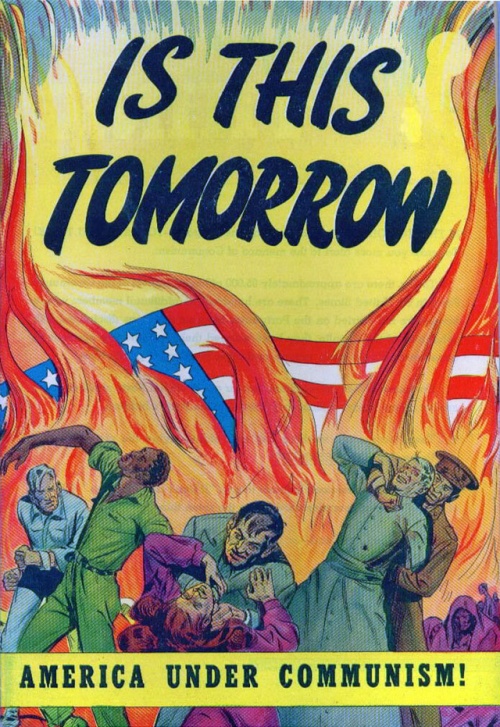Tomorrow
by cominsitu
Communism means the end of a series of mediations which were previously necessary (in spite of the misery they entailed) to accumulate enough past labour to enable humans to do without these mediations. Value is such a mediation: it is now useless to have an element external to social activities to connect and stimulate them. The accumulated productive infrastructure only needs to be transformed and developed. Communism compares use values to decide to develop a given production rather than another one. It does not reduce the components of social life to a common denominator (the average labour time contained in them). Communism organizes its material life on the basis of the confrontation and interplay of needs – which does not exclude conflicts and even some form of violence. People will not turn into angels: why should they?
Communism is not a set of measures to be put into practice after the seizure of power. It is a movement which already exists, not as a mode of production (there can be no communist island within capitalist society), but as a tendency which originates in real needs. Communism does not even know what value is. The point is not that one fine day a large number of people start to destroy value and profit. All past revolutionary movements were able to bring society to a standstill, and waited for something to come out of this universal stoppage. Communization, on the contrary, will circulate goods without money, open the gate isolating a factory from its neighbourhood, close down another factory where the work process is too alienating to be technically improved, do away with school as a specialized place which cuts off learning from doing for 15 odd years, pull down walls that force people to imprison themselves in 3-room family units – in short, it will tend to break all separations.
The mechanism of the communist revolution is a product of struggles. Their development leads to a time when society forces all individuals whom it leaves with no other perspective to establish new social relations. If a number of social struggles now seem to come to nothing, it is because their only possible continuation would be communism, whatever those who take part in them may now think. Even when workers are just making demands they often come to a point when there is no other solution but a violent clash with the State and its assistants, the unions. In that case, armed struggle and insurrection imply the application of a social programme, and the use of the economy as a weapon. The military aspect, as important as it may be, depends on the social content of the struggle. To be able to defeat its enemies on a military level, the proletariat – whatever its consciousness – transforms society in a communist way.
